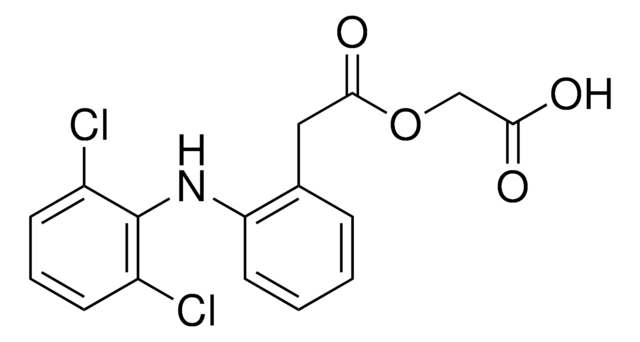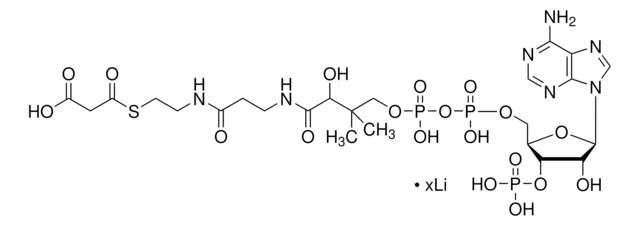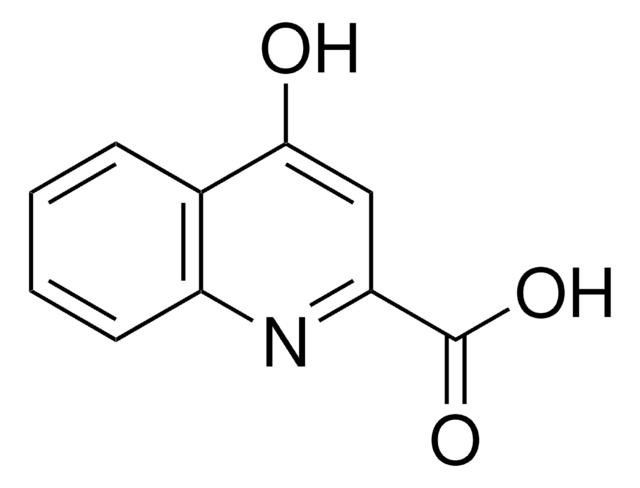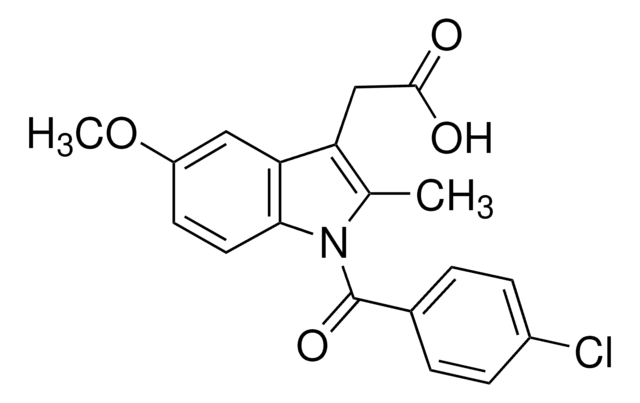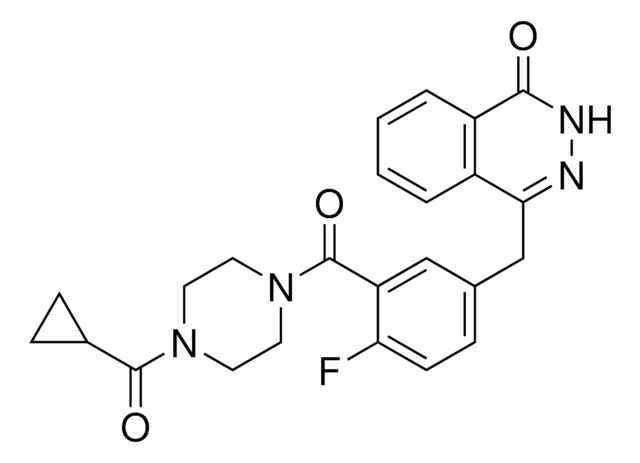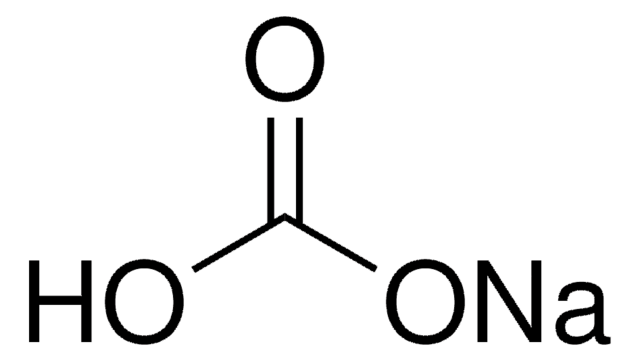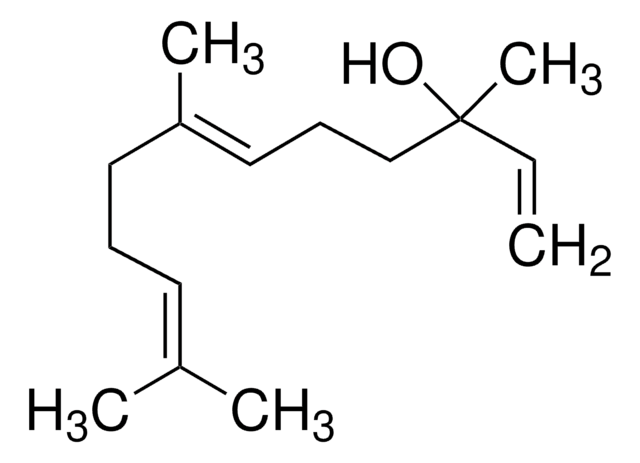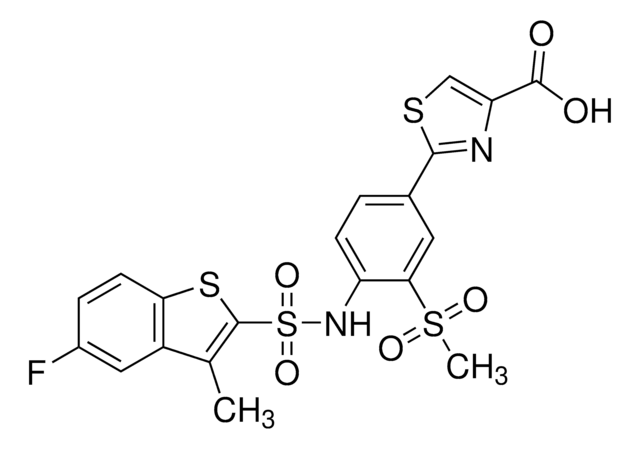SML2307
Lodoxamide
≥98% (HPLC)
Synonym(s):
2,2′-[(2-Chloro-5-cyano-1,3-phenylene)diimino]bis-2-oxoacetic acid
About This Item
Recommended Products
assay
≥98% (HPLC)
form
powder
color
white to very dark brown
solubility
DMSO: 2 mg/mL, clear
storage temp.
−20°C
InChI
1S/C11H6ClN3O6/c12-7-5(14-8(16)10(18)19)1-4(3-13)2-6(7)15-9(17)11(20)21/h1-2H,(H,14,16)(H,15,17)(H,18,19)(H,20,21)
InChI key
RVGLGHVJXCETIO-UHFFFAOYSA-N
Biochem/physiol Actions
wgk_germany
WGK 3
flash_point_f
Not applicable
flash_point_c
Not applicable
Certificates of Analysis (COA)
Search for Certificates of Analysis (COA) by entering the products Lot/Batch Number. Lot and Batch Numbers can be found on a product’s label following the words ‘Lot’ or ‘Batch’.
Already Own This Product?
Find documentation for the products that you have recently purchased in the Document Library.
Our team of scientists has experience in all areas of research including Life Science, Material Science, Chemical Synthesis, Chromatography, Analytical and many others.
Contact Technical Service